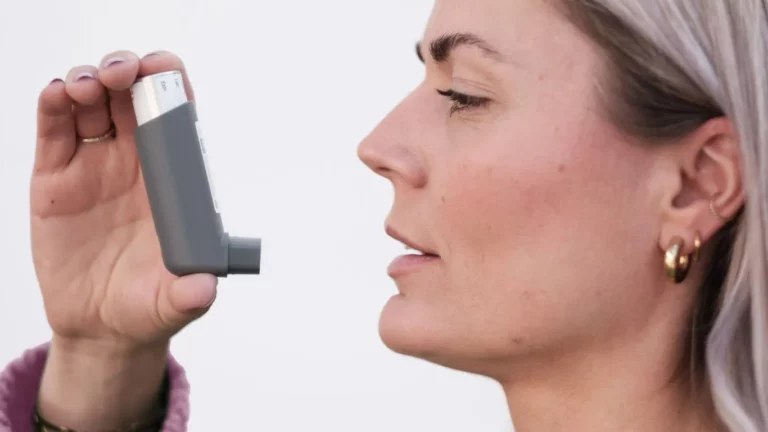Low-Acid Drinks for GERD Sufferers: What You Can Safely Enjoy
Let’s be real—living with GERD makes you rethink even the simplest pleasures, like sipping your favorite drink. I’ve been there, staring at the fridge, unsure if that glass of juice will set off a wave of heartburn. Finding low-acid drinks that don’t mess with your reflux isn’t just about comfort—it’s a lifestyle adjustment. Good news? You don’t have to stick to plain water forever. There’s actually a decent variety of GERD-friendly beverages out there if you know what to look for. So, here’s what’s worked for me and what research backs up when it comes to drinks that go easy on your gut.
Why Drink Choices Matter When You Have GERD

Acidic drinks are sneaky triggers for reflux. Even stuff that seems healthy—like orange juice or tomato-based beverages—can dial up stomach acid and irritate your esophagus. That’s why shifting to low-acid options can significantly reduce symptoms like chest burning, throat irritation, and even nighttime reflux episodes.
In fact, as noted by Mayo Clinic, dietary changes are often the first line of defense before medications are even introduced. It’s not just about cutting things out—it’s about swapping smartly.
Top Low-Acid Drinks You Can Safely Enjoy

1. Aloe Vera Juice (Unsweetened, Purified)
Aloe vera juice was one of my early game-changers. It’s naturally soothing and may help reduce inflammation in the gut. Look for brands like Lily of the Desert that are labeled “inner fillet” and “decolorized” (important to avoid laxative effects). Bonus: it’s a little refreshing when chilled with ice.
Try not to exceed 1/2 cup per serving, especially if you’re new to it.
2. Coconut Water (Natural, No Added Sugar)
When I swapped soda for coconut water, I didn’t miss the fizz as much as I expected. It’s naturally low-acid and rich in potassium, which can help maintain pH balance in the stomach. Just make sure it’s plain—no pineapple blends or sweeteners.
Curious about the effects? This article explains how coconut water can ease GERD symptoms naturally.
3. Herbal Teas (Caffeine-Free Only)
I’ve relied heavily on chamomile and slippery elm teas on bad days. Herbal infusions help settle the stomach and won’t trigger reflux the way green or black tea might. Stay far away from peppermint though—it may relax the LES and worsen symptoms.
4. Alkaline Water
Honestly, I was skeptical at first, but alkaline water with a pH of 8+ has helped during flare-ups. It may reduce the acidity in the esophagus temporarily. This is especially helpful right after meals, when reflux tends to hit hardest.
Read more about this strategy in our guide on alkaline water for GERD.
5. Non-Acidic Fruit Juices (Diluted)
Yes, you can enjoy juice—just not citrus. Juices from low-acid fruits like pears, melons, or coconuts (blended at home) are better tolerated. I like to dilute them with filtered water for even less acidity and sugar impact.
- Try mixing pear juice with aloe for a soothing morning tonic.
- Blend melon with coconut water for a hydrating afternoon drink.
What to Avoid (Even If It Looks “Healthy”)

There are some drinks that seem harmless but absolutely don’t get along with a sensitive stomach. Over the years, I’ve learned (the hard way) to stay away from:
- Citrus Juices: Orange, grapefruit, lemon—just no. Even small amounts can trigger flare-ups.
- Carbonated Drinks: Soda, sparkling water—even kombucha. That extra gas expands the stomach and pressures the LES (lower esophageal sphincter).
- Caffeinated Beverages: Coffee (including decaf), energy drinks, and some teas. Caffeine can relax the LES, worsening reflux.
- Alcohol: Especially wine and beer. If you’re curious about what alcohols are safer, see this breakdown of reflux-safe alcohol choices.
What I Personally Keep Stocked in My Fridge Now

- Unsweetened coconut water – especially Harmless Harvest or ZICO.
- Alkaline water – I usually grab Essentia or Smartwater Alkaline.
- Chamomile and ginger teas – easy to prep and calming.
- Homemade pear juice – diluted with half water, makes a gentle treat.
These options don’t just taste good—they’ve saved me from dozens of miserable nights. And if you want to go beyond drinks and see how a full food plan can make life with GERD easier, check out our GERD diet plan that actually works. It’s the blueprint I wish I had when I was first diagnosed.
Soothing Sips for the Evening

Evenings can be rough with GERD—laying down too soon after eating is already a trigger, and sipping the wrong thing before bed can make your night miserable. Personally, I’ve learned that finding the right nighttime drink can mean the difference between a restful sleep and hours of tossing and turning.
1. Warm Chamomile or Licorice Root Tea
There’s a reason chamomile gets all the love—it’s calming for both the mind and the gut. I usually brew a cup an hour before bed. This guide breaks down why it works so well for GERD. Licorice root is another solid option, just make sure it’s DGL (deglycyrrhizinated) to avoid messing with your blood pressure.
If you’re exploring natural options, check out licorice root for acid reflux—I’ve had great success alternating it with chamomile throughout the week.
2. Warm Water with a Dash of Raw Honey
Simple, right? But it helps. I don’t do this every night, but when my throat’s feeling raw or inflamed, warm (not hot!) water with a teaspoon of raw, local honey is a lifesaver. Not only does it coat the esophagus, but it also satisfies a sweet craving without triggering reflux. This article explains how honey can soothe reflux symptoms in a gentle, natural way.
Hydration Tips You Didn’t Know You Needed

Here’s the thing I wish someone had told me: how you drink matters almost as much as what you drink. In the early days of figuring out my reflux, I’d down a glass of water with meals thinking it was helping. Big mistake. It actually made me feel more bloated and worsened reflux symptoms.
Smart Drinking Habits for GERD Relief:
- Sip, don’t gulp: Drinking too fast floods the stomach and increases pressure on the LES.
- Hydrate between meals: I now drink more fluid between meals instead of during, which has helped dramatically reduce bloating.
- Elevate your bedtime drinks: Literally—prop yourself up with a wedge pillow if you sip something warm before sleep.
These might sound like tiny adjustments, but they’ve added up big time in my GERD management routine. If bloating is part of your issue (as it is for many reflux sufferers), these tips for bloating and GERD are gold.
Products and Brands I Actually Trust

I know people say “just drink herbal tea” or “try coconut water” but let’s be honest, some of them taste like watered-down sadness. Through trial and error (and way too many half-used bottles), these are the brands I stick with:
- Lily of the Desert Aloe Vera Juice (Inner Fillet, Preservative-Free): Clean taste, zero acid burn.
- Harmless Harvest Coconut Water: Expensive but so worth it. No funky aftertaste.
- Traditional Medicinals Chamomile and Licorice Root Tea: Available everywhere and they just work.
- Essentia Alkaline Water: Great pH level and no aftertaste. My go-to post-meal drink.
- Local Raw Honey: If you can find some at your local farmer’s market, even better.
These aren’t just random picks—I’ve tested these while tracking symptoms in my reflux journal (yes, that’s a thing). Want to go a step further? Pair your drink swaps with a proven GERD-safe diet plan to feel the difference fast.
Drink Pairings That Keep GERD at Bay

Sometimes, it’s not just what you drink but what you’re drinking with. Here are some easy pairings that I’ve personally found helpful:
- Alkaline water + oatmeal breakfast: No reflux surprises for hours after.
- Pear juice + plain toast with almond butter: A gentle, energizing snack.
- Chamomile tea + grilled chicken salad (no citrus dressing): Light but filling meal that sits well.
And if you’re still wondering what foods pair best with these drinks, start with this comprehensive list of reflux-safe foods.
Still Struggling to Find Your Go-To?

Look, no drink is magic. What soothes one person might irritate someone else. I’ve had to experiment for months to figure out what actually works for my body. That’s why keeping a journal really helped—note what you drink, when, and how it made you feel. Over time, patterns emerge.
If you haven’t already, try starting with just one low-acid drink per day, then gradually swap out trigger options. And if you’re someone who enjoys variety, the best juices for GERD article offers even more ideas worth checking out.
You don’t have to give up flavor to avoid the burn. With the right swaps, you’ll enjoy sipping again—without the fire.

Camellia Wulansari is a dedicated Medical Assistant at a local clinic and a passionate health writer at Healthusias.com. With years of hands-on experience in patient care and a deep interest in preventive medicine, she bridges the gap between clinical knowledge and accessible health information. Camellia specializes in writing about digestive health, chronic conditions like GERD and hypertension, respiratory issues, and autoimmune diseases, aiming to empower readers with practical, easy-to-understand insights. When she’s not assisting patients or writing, you’ll find her enjoying quiet mornings with coffee and a medical journal in hand—or jamming to her favorite metal band, Lamb of God.







